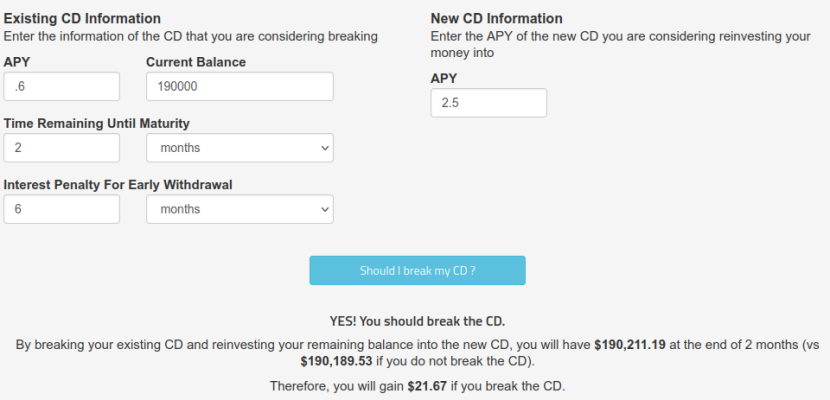Andre1969
Thinks s/he gets paid by the post
Hey everyone,
I was just looking at CD rates at Citibank, and noticed something that struck me as weird...they're offering a 1 year CD for 4.00%, but a 2 year for only 2.00%?
could someone tell me what the catch is? The 1 year rate seems a bit too good to be true, but why would it be better than the 2 year rate? Here's where I'm seeing this...
https://online.citi.com/US/ag/banking/cd-account
Thanks!
I was just looking at CD rates at Citibank, and noticed something that struck me as weird...they're offering a 1 year CD for 4.00%, but a 2 year for only 2.00%?
could someone tell me what the catch is? The 1 year rate seems a bit too good to be true, but why would it be better than the 2 year rate? Here's where I'm seeing this...
https://online.citi.com/US/ag/banking/cd-account
Thanks!

